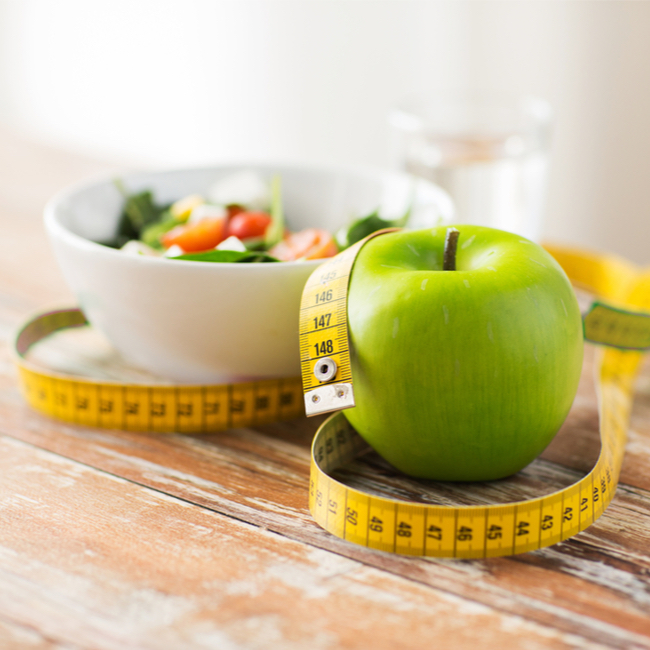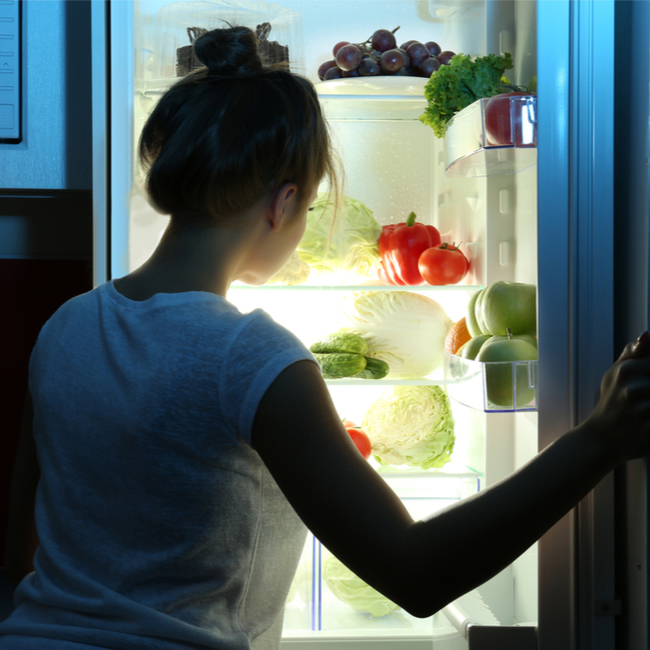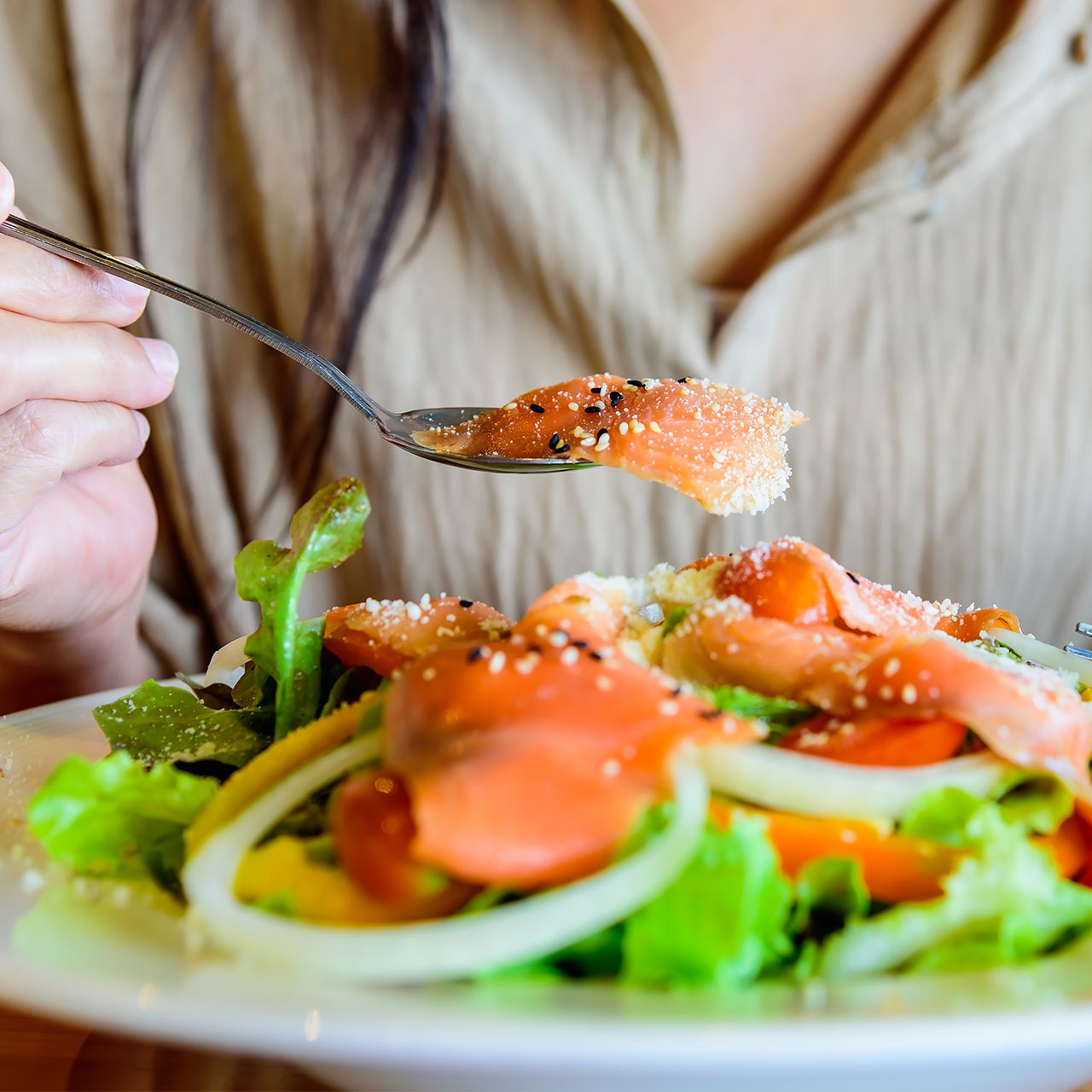When it comes to losing weight, one of the primary changes that must take place in your diet is the creation of a small calorie deficit that has you consuming slightly fewer calories than the energy you exert throughout the day. This can come about from increasing your physical activity, decreasing the amount you’re eating, or doing a little bit of both to hopefully meet in the middle and create a sustainable deficit.
However, it can become all too easy to restrict calories in excess in order to see results more quickly, and while this might work in the short term, dramatically restricting your calories over a long period of time can actually have some significant negative effects on your body down the road.
We spoke with Paula Doebrich, MPH, RDN and Registered Dietitian at Happea Nutrition who gave us a conclusive rundown on the downsides of excessive calorie restriction over time, and explained why moderation really is the way to go for healthy weight loss.


The largest impact that calorie restriction can have is not only on your ability to lose weight, but at a deeper level it can affect your hormone balances as well. “Weight loss as a result of low-calorie diets has also been found to cause a decline in estrogen and progesterone levels,” warns Doebrich. “Low levels of these hormones are associated with a higher risk of obesity, osteoporosis and cardiovascular disease.”
When you deprive your body of the energy it needs to get through the day, other areas of your health will suffer due to the lack of fuel you’re providing yourself. With hormones out of whack you may experience gut health issues, lose your period, or even potentially slow down your metabolism as your body falls into starvation mode.
As you create a larger and larger calorie deficit, your body will adjust to the amount of fuel you’re giving it and over time it will take a more significant reduction of calories to see changes in your body. This quickly slides into dangerous territory of starving yourself to see changes on the scale, but can be avoided by merely creating a smaller deficit to begin with that can be sustained over a long period of time.
“The metabolism becomes less efficient and our basal metabolic rate is lowered as a response to caloric restriction. This is why with every diet, you need to eat less to see results,” explains Doebrich.

Outside of your hormones and metabolic issues that may arise from depriving yourself of adequate calorie consumption, your mental health may also suffer from a restrictive diet as it creates an unhealthy ‘all or nothing’ mindset around food where you begin to think of eating as something of a treat.
“Many people who believe they have a food addiction or extreme emotional eating are just responding to extreme restrictions,” notes Doebrich. “I work with many clients who try to get out of the vicious diet-binge circle that extreme restriction pushes them into. Caloric restriction is one of the biggest predictors for developing disordered eating patterns, such as binge eating. These eating patterns could greatly impact our everyday lives and take years to heal.”
If you catch yourself dramatically restricting your calories in a bid to lose weight, the first thing you should do is focus on filling your plate with whole fruits and vegetables as well as whole grains which will keep you full for longer. Eating more nutrient dense foods will allow you to maintain a smaller deficit more easily without depriving yourself, and making sure to eat ample protein, carbs and healthy fats will provide your body with what it needs to feel great and lose weight.
“Nutritional deficiencies can be replenished and once the body gets plenty of energy and fats, hormones will be made in sufficient levels again,” says Doebrich. “The mental problems caused by dieting are much more work, but with the right support they too are manageable.” On the whole she suggests trying a 200-300 calorie deficit to help you reach your goals, and slightly increasing your movement throughout the day will make this possible without ever cutting out foods you love so you can continue to look forward to eating.


























